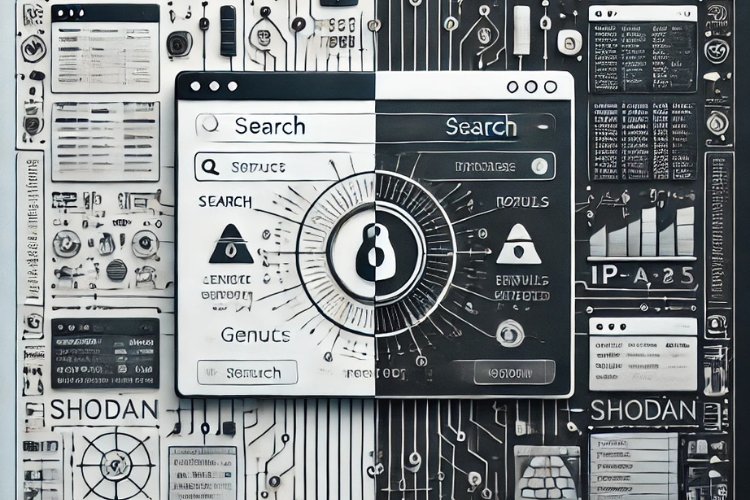Introduction
In an era of hyper-connectivity, a tool like Shodan.io is both powerful and chilling. Shodan isn’t your typical search engine. While Google and Bing comb the web for websites, Shodan specializes in finding internet-connected devices. This includes everything from security cameras and routers to industrial control systems and even household items like smart refrigerators. Shodan shines a light on the hidden vulnerabilities of our digital world, and for developers, it’s both a warning and a call to action.
What Is Shodan.io and Why Is It So Terrifying?
Shodan is unlike any other search engine. It doesn’t index websites or data—it indexes IP addresses of connected devices worldwide. This means if a device is online and lacks proper security, Shodan can find it. Imagine logging into a search engine and pulling up a random, unsecured camera feed from anywhere in the world. That’s the power of Shodan. But it doesn’t stop there. Shodan’s scope reaches critical infrastructure, like water treatment facilities and industrial systems.
The frightening part? You don’t need to be a hacker to access this information. Shodan’s interface is straightforward, allowing anyone to use it with minimal technical knowledge. With Shodan, the barrier to discovering unsecured devices is as simple as typing into a search bar. For those who understand the implications, this accessibility is alarming.
The Potential Risks of Shodan.io’s Reach
The vast reach of Shodan poses unique risks. Through Shodan, it’s possible to locate an insecure device controlling a factory or even a power grid. For a regular user, this might sound like science fiction, but it’s happening in real-time. Many devices, from factory control systems to home security cameras, lack proper security measures. Shodan makes it easy to identify these vulnerabilities.
Imagine a scenario where an individual gains access to a water treatment plant or a city’s traffic control system. This is not a theoretical risk but a real one. Shodan reveals these gaps in security, showing us how exposed our infrastructure really is. While this power can be used for good, it also opens the door for cybercriminals who want to exploit these vulnerabilities.
How Shodan Differs from Other Search Engines
Unlike traditional search engines like Google, Shodan isn’t concerned with websites or pages. Instead, it focuses on IP addresses and the devices associated with them. This allows Shodan to delve deeper than typical search engines. It’s capable of finding connected devices live and in real-time, meaning users can search for a variety of devices, from industrial systems to IoT-enabled gadgets.

For example, while Google might help you find a company’s website, Shodan might find the company’s security cameras or server system if they’re online and unsecured. This difference in scope is what makes Shodan both powerful and, at times, terrifying.
Real-World Dangers: When Convenience Compromises Security
Today’s world prioritizes convenience, often at the expense of security. Devices like smart cameras, thermostats, and even refrigerators are designed with ease of use in mind. Security is often an afterthought. This lack of security is where Shodan steps in. With a few clicks, it’s possible to locate unsecured cameras, databases, and even control systems for industrial machinery.
For individuals, this means a stranger could potentially access their security camera feeds or smart home devices. For businesses, it could mean a breach in factory systems or data servers. Shodan shows just how easy it is to exploit devices that were never designed with security in mind, making them vulnerable to unintended consequences.
The Upside of Shodan: A Tool for Good in the Right Hands
While Shodan’s capabilities can be unsettling, they’re also a valuable asset in cybersecurity. Security researchers and ethical hackers use Shodan to identify vulnerabilities before malicious actors can exploit them. For example, researchers may use Shodan to find devices that are open to public access unintentionally, allowing them to warn companies and individuals about these risks.
Shodan is a tool for ethical hackers and security experts to assess and repair security gaps. In this way, Shodan can function as a protective shield, alerting organizations to risks before they become issues. By identifying these vulnerabilities early, Shodan allows companies to secure their infrastructure and devices proactively. This tool, in the right hands, is invaluable for improving security and awareness.
The Call to Action for Developers: Prioritizing Security
For developers, Shodan is a wake-up call to treat security as a priority. Every connected device is a potential entry point for cyberattacks. Devices that prioritize convenience over security create weak points in the digital network. As the tech world becomes increasingly interconnected, developers need to approach device security as essential, not optional.
Developers now have a responsibility to secure their products, especially those intended for IoT environments. Shodan reveals the consequences of neglecting this responsibility, and for developers, it serves as a reminder that their creations can be exposed if security isn’t built in from the start. Every device and application should be designed with protection against unauthorized access in mind.
Shodan’s Role as a Reality Check on Digital Security
Shodan serves as a reality check for everyone, from individual users to large corporations. It highlights the weaknesses in our digital defenses and reminds us that our growing dependence on connected devices comes with risks. Shodan reveals how widespread these vulnerabilities are, exposing the ease with which a motivated individual can find unprotected systems.
For consumers, it’s a reminder to secure personal devices. For businesses, it’s a call to prioritize cybersecurity across all operations. And for developers, it underscores the importance of secure coding practices. Shodan illustrates how the convenience of internet-connected devices comes at the cost of increased exposure, pushing everyone to rethink how they approach security.
Conclusion: Shodan as a Catalyst for Change in Cybersecurity
Shodan might be the scariest search engine you’ve never heard of, but it’s also a force for good. It’s a tool that shines a light on hidden vulnerabilities, pushing the digital world to take security seriously. Shodan reminds us that the digital infrastructure we rely on daily is far more vulnerable than we might think.
For developers, this is an opportunity to lead the way in building secure, connected solutions. Shodan may expose weaknesses, but it also empowers those who want to create more secure systems. In an age of digital connection, Shodan’s presence is a call to action—a reminder that security is no longer optional. As the internet continues to grow, so too must our commitment to protecting it.
At StartupHakk, we believe in empowering developers to not only build innovative products but to make security a priority. Shodan isn’t just a search engine; it’s a reality check. And it’s up to developers, companies, and platforms like StartupHakk to respond with stronger, safer digital systems that protect and preserve the integrity of our connected world.




